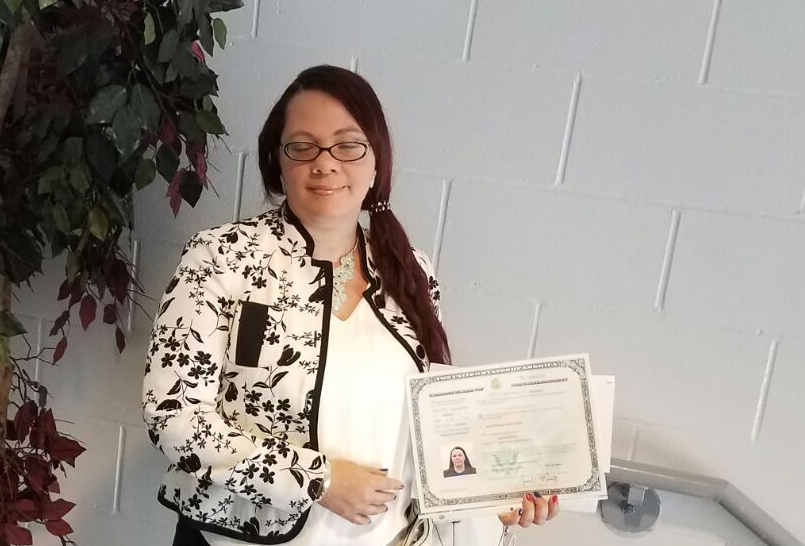News > ILCM In The News
A Tale of Two Citizens
Posted on Sep 04 2017

After traveling a long, hard, and costly road, Licette Peña Paulino became a U.S. citizen this year. She waited for almost a decade to get a visa. After becoming a permanent legal resident, she had to wait five years to apply. Application fees total $725 now. After applying she had to wait again – for processing of papers and background checks and scheduling the naturalization interview and tests.
Along the way, Licette got help with the application and test preparation from Graciela Gonzalez, her pro bono attorney with the Immigrant Law Center of Minnesota, who is also an immigrant. Licette said she is grateful to the Immigrant Law Center of Minnesota, whose staff and volunteers made her feel “very welcome and not afraid through the process of becoming a citizen.”
Many years ago, Licette’s parents applied for her visa under the family reunification provisions of current U.S. immigration law. Then they waited – her parents here and Licette in the Dominican Republic, where she was a medical doctor. She was eight months pregnant when she received her visa. Coming to the United States with her husband and two children in September 2010, she gave birth to their third child in October.
Without speaking English, everything seemed frightening at first. She started English classes in November 2010.
Though Licette was a medical doctor in the Dominican Republic, her Dominican medical education and credentials weren’t recognized here. She had to look for other work. She now works as a personal care attendant. When she explored nursing classes through a community college, the process seemed bureaucratic and complicated. She is now preparing to become a physician’s assistant.
Licette’s desire to come to the United States and become a citizen began with the stories of friends who had visited here. Her parents came to the United States in search of work and a better life. She wanted that for herself and her children, too.
Now that she is here, Licette says she appreciates the order and relative security of living where people follow the rules. She is also glad that when she works, she has the materials she needs for her work—something we often take for granted.
She and her father prepared for citizenship together. Besides learning English, they had to pass a citizenship test with questions on American government, history and civics. The application process is expensive, but she and her father qualified for pro bono assistance from the Immigrant Law Center of Minnesota. Graciela Gonzalez, her attorney. “was wonderful,” Licette said.
Graciela Gonzalez recounts a similar journey. She came to the United States from Argentina and earned her B.A. from the University of Minnesota with majors in English and political science. She began her career as a certified interpreter in federal and state courts, and in immigration courts. She also taught “Interpreting in Legal Settings” at the University of Minnesota for many years. After her children left home, she earned a law degree from the University of St. Thomas and now practices immigration and criminal law. She also volunteers pro bono services at the Legal Rights Center, a non-profit organization that represents, free of charge, indigent and low income criminal defendants.
Graciela said it gives her great joy to help immigrants like Licette find their way through the paperwork, interviews and tests required to become a U.S. citizen. Naturalization is a moment of great emotion, as an immigrant steps into a new identity without giving up their native culture. Becoming a U.S. citizen is a process of addition, not substitution or subtraction. Welcoming new citizens enriches the United States.
Thanks to Newell Searle, a volunteer for ILCM, for writing this article.




